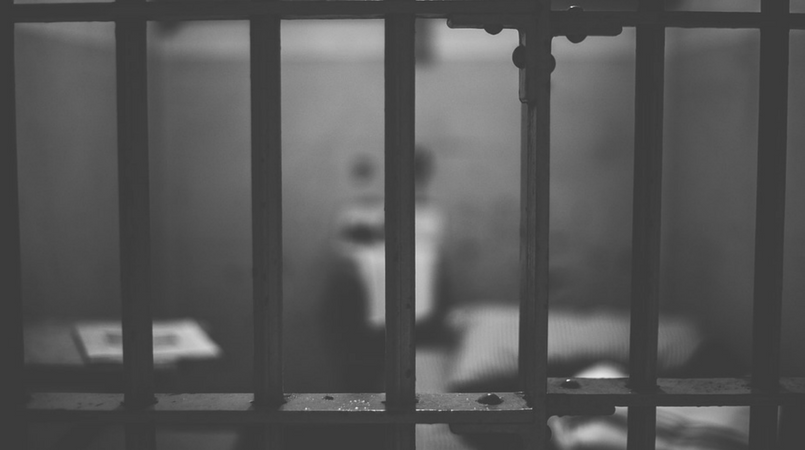
*Larry is a skinny youth, small for a 17-year-old. His long pants and t-shirt hang loosely from his body. His posture, still not comfortable to visitors, as he tells his story.
He has been on the run for months now, after being falsely accused of stealing from his employer.
He was a carrier for a local businesswoman named *Mary. He’d carry her second-hand clothes bales daily, to and from her place to the market. Second-hand clothing is a popular and demanding market in the country, and makes good money.
Larry’s engagement wasn’t long before one of the bales went missing. Blaming Larry, Mary had him arrested, charged and thrown in jail.
His first few days were spent in the adult jail before being transferred to the juvenile prison. His case was confusing right from the start, showing no defined process in the law and order system.
The care was good though. Larry says there were regular 3 meals a day. He soon made friends with other inmates, and they looked out for each other.
“Those who’d been in there longer told us that if someone suggested the idea to escape, don’t try it!” Larry said.
So Larry stayed put. And behind bars he remained, for 6 months straight, awaiting the court decision.
“I would spend every day just thinking what went wrong,” he continues.
Larry hardly maintains eye contact. He looks up for a brief moment and switches his attention back to the stick he has been sharpening with a long machete.
Six months after the arrest, the court found him guilty. Larry was ordered to pay Mary K1,500 and released. But maintaining his innocence, Larry refused to pay and managed to run away before a re-arrest could be made.
The system, meant to protect him, had failed him, and he has been on the run since. Larry’s movement is restricted to his village only.
With a lot of time on his hands, Larry has built his own hut at the river’s edge. He points to it.
The spot he chose is opposite the main village, on the other side of the river, isolated from the rest.
“I live with fear every day, that anytime they’ll show up and take me back to prison…I didn’t do anything…and I don’t want to go down for something I didn’t do,” he adds. Larry is agitated as the crowd around us start to increase.
Larry’s case arrives on the desk of the local Child Protection officer, *Philip. Philip has been holding this office for years, but the office of Child and Family Services, Division for Community Development Southern Highlands provincial administration, is under resourced and therefore he is unable to see all cases through.
Many other challenges face Philip every day. His office was broken into and all properties stolen. The 7-storey office building was further damaged during the recent 7.5 magnitude earthquake that hit the province in February.
Philip now shares office with another government official. But the work he does is too sensitive for it to be conducted in a public space.
UNICEF has begun building relationship with the government office, with a commitment to support. To establish a strong partnership, UNICEF and the Division for Community Development in Southern Highlands are sharing knowledge on a day-to-day basis towards finding a way to dealing with work better.
As a start of this partnership, UNICEF will provide tents to allow for a separate interview corner, which will see privacy and confidentiality exercised with each case as part of emergency relief service to the children of Southern Highlands.
Larry’s case is an example of a child in need of protection, which Philip as a protection officer must advocate for his freedom. Using the Lukautim Pikinini Act (LPA) 2015, Philip has the power to protect juvenile in need of protection.
UNICEF, during 2018, is continuing to support the division for community development to train Child Protection officers on the Lukatutim Pikinini Act and Juvenile Justice Act as part of capacity building for effective response towards children in need of protection.
*Names have been changed to protect identities
